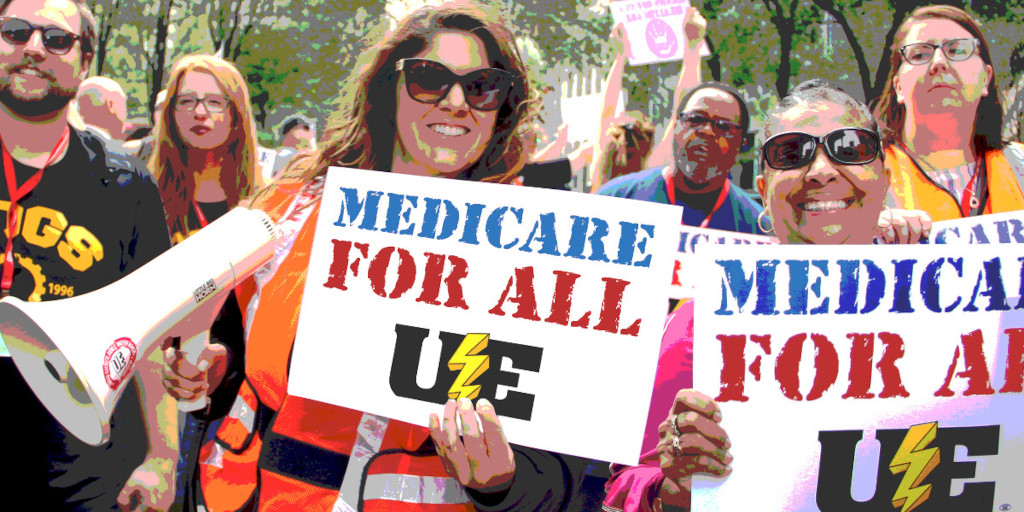
Since UE’s founding, rank and file control and political independence have been tied together. Political independence means making decisions about political issues based upon the effect those issues have on the members and working people in general. Neither of the two major political parties is consistently advancing a worker-friendly agenda — so the union is under no obligation to support either one. It would be wrong to compromise the union’s principles based on party allegiance.
For most of the second half of the 20th century, the majority of the U.S. working class supported the Democratic Party. The historic link between labor and the Democratic Party derives from the close identification of the Republican Party with big business as well as pro-worker legislation championed by Democrats in the middle of the 20th Century. Franklin Roosevelt’s New Deal administration in the 1930s enacted the National Labor Relations Act and Social Security, and Lyndon Johnson’s Great Society administration in the 1960s created Medicare and Medicaid.
However, in the last several decades growing corporate power has resulted in Democrats undermining social programs that working people rely on and supporting trade policies that destroy jobs. With many Democratic candidates giving working people few strong reasons to vote for them, working-class support for the party has significantly eroded.
The policies of both parties are now shaped primarily by big campaign contributions from corporate America. Democracy cannot survive when the government is for sale to the highest bidder. That’s why UE supports political independence of the labor movement and works to build a political party that will base its policies on the needs and interests of working people.
Issue-based mobilization
A rank-and-file union decides what issues are important to workers through discussion at every level of the union. In UE, delegates to the national convention debate resolutions submitted by locals and districts, then vote on the union’s policy. The union leadership and staff then work together to mobilize the members in support of that policy. A rank-and-file union does not base its positions on Democratic Party dictates.
Two recent Democratic Presidents, Bill Clinton and Barack Obama, were champions of job-killing free trade agreements, and both sought, with some success, to roll back many of the signature New Deal policies that won working-class support for the Democratic Party in the first place. As working-class support for Democrats eroded, Republican politicians, many of them multi-millionaires or billionaires, increasingly adopted rhetoric about supporting “the working man” against “elites” — but as their track record shows, they have no intention of actually supporting workers in fights against the power of corporations and the wealthy. Instead, they are seeking to exploit cultural differences to distract people from their actual record — but sadly, in the absence of Democrats mounting any real fights for workers, they have succeeded in gaining the allegiance of many working people.
This puts union leaders who support the Democratic Party uncritically in the awkward position of making excuses for Democrats who have voted to export or privatize their members’ jobs, who have acted to prevent them from striking, or who simply have never been seen fighting for workers.
But a union that democratically determines its positions on issues based on its members’ needs will not be put in the position of betraying workers to curry favor with politicians of either party.